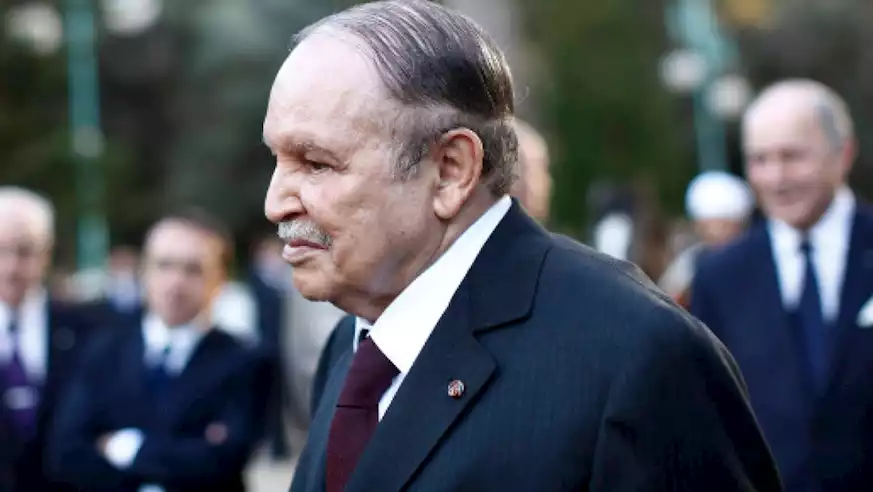BY: Hana Saada

PEJOURNAL – Former Algerian President Abdelaziz Bouteflika died, late Friday, September 17th, 2021, at the age of 84 after enduring years of ill health, reported the Algerian Presidency of the Republic late Friday.
To this end, the late Bouteflika was buried, Sunday, in the Martyrs’ Square in El-Alia cemetery.
The late Bouteflika, a veteran of Algeria’s war for independence, had taken Algeria’s reign of power for two decades before his resignation in April 2019.
He joined the independence war against France at the age of 19 as a protege of commander Boumediene, who became president in 1965.
After Algeria’s independence from France in 1962, Bouteflika served in Algeria’s first post-colonial government and became minister of youth and tourism at the age of 25.
A year later, at the age of 26, he was appointed minister of foreign affairs, becoming Algeria’s second foreign minister and the youngest person in the world to hold such a position.
The late was an influential figure in the Non-Aligned Movement that gave a global voice to Africa, Asia and Latin America.
As a president of the U.N. General Assembly, Bouteflika invited former Palestinian leader Yasser Arafat to address the body in 1974, a historic step toward international recognition of the Palestinian cause.
He, also, demanded that China be given a seat in the United Nations, and railed against apartheid rule in South Africa. In 1974, he ordered the expulsion of South African officials from Algeria in protest against the apartheid system.
He championed post-colonial states, challenging the hegemony of the United States.
He also welcomed Che Guevara, and a young Nelson Mandela got his first training in Algeria. Black Panther Eldridge Cleaver, on the run from U.S. police, was given refuge.
Algeria, under his tenure, opposed the Arab League members on giving the Syrian seat in the League to the Syrian opposition, and Algiers resisted taking any kind of military action in Syria, and as for Hezbollah and Hamas, Algeria objected putting their names on the terrorist group list in the Arab League.
The late Bouteflika expressed refusal to join the Saudi coalition against Yemen, sending a clear message to Riyadh that Algiers refuses delving into a diplomatic game that would be dictated by the Americans.
Since the very beginning of the nuclear talks and even before the conclusion of the JCPOA, Algeria was positive about Iran’s peaceful nuclear activities and constantly and explicitly defended Iran’s right in international bodies. Following the implementation of the nuclear deal finalized by Iran and six world powers in July 2015, known as the JCPOA, Algeria considered the deal as an important stage in the process of the settlement of the tension and crisis situations, in a view to preserving international peace and security, and development in the benefit of all the peoples.
Elected president in 1999, he launched a national reconciliation process allowing the country to restore peace, following the black decade as the country was ravaged with a war between the Algerian army and armed Islamist militants that killed at least 200,000 Algerians.
President Abdelaziz Bouteflika resigned on Tuesday, April 2, 2019, a few weeks before the end of his term of office on April 28 following protests calling for the renewal of the political class.